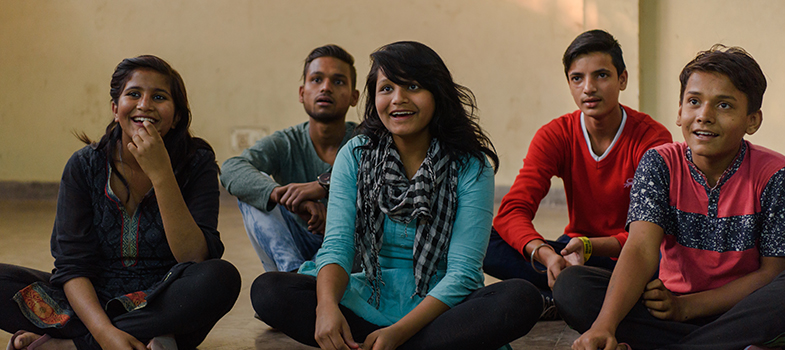3.5 Answering questions
Let’s now look at some examples of questions around sex and pleasure that young people may ask you.
Activity 3.5: Facilitating discussions on sexual pleasure with young people
In the speech bubbles below are questions that a young person has asked during a one-to one encounter with an educator. In the textboxes write a few sentences (about 5) on the advice you would give to the young person exactly as if they were from your own neighbourhood or family.
When you have finished, take a few minutes to reflect on your responses and consider the following questions:
- What factors influenced your advice in the two cases?
- How do you think your advice would shape the young person’s view of sex and pleasure?
Having reflected on these questions, is there anything you would like to change in your responses? Are there any changes you would make to the way in which you talk to young people about sexual pleasure in the future? Use the text boxes to write about your reflections and any changes you would like to make.
Discussion
This is the advice given by a young person who was supporting our writing team.
Case 1
Most people enjoy touching themselves and it can be a good way of getting to know your body. You don’t feel the same pressure as if you’re with another person. I think most people do it, but if you don’t feel like it that is also OK.
You might have thought about other things, such as whether this is a boy or a girl, and whether or not they sleep alone in their bed or with family, or whether they are really talking about masturbation at all.
Case 2
It is always good to talk to your girlfriend but it can be a bit awkward. You could try to stroke her thighs or offer her a massage and perhaps put her hands on your stomach. Or if you’re a girl you can put them on your breasts to show her where you would like her to touch you. If you kiss you will feel if she wants the same. Of course, if she pulls back you can ask if she does not feel like it, and then you have to wait.
Integrating sexual pleasure into CSE with young people can lead to you being asked a lot of questions – some easy, some not so easy! Although it’s always good to be prepared for these, it’s also good to remember that often young people are experts themselves and you won’t always know what’s best!
Further thoughts
Do you remember when you were first trained to facilitate CSE? What was your reaction to the curriculum or topics to be taught? Perhaps curiosity about learning new things? Perhaps uncertainty of how to do it? Or a feeling of inadequacy in terms of how to even speak about it?
The language and words we use to talk about something is often influenced by our own knowledge and values, and it can be quite difficult not to bring our own words and experiences into a conversation or educational session.
You might find this TED talk by Al Vernacchio [Tip: hold Ctrl and click a link to open it in a new tab. (Hide tip)] interesting, as it discusses the language we use to talk about sex. The video is 7 minutes long.
3.4 Governments
